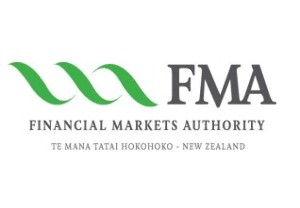FMA statement of intent: Keep watch on incentives
New Zealand’s financial service providers can expect more scrutiny of their incentive structures over coming years, the Financial Markets Authority’s latest Statement of Intent shows.
Tuesday, June 30th 2020, 10:37PM

It has released an updated Statement of Intent for 2020 to 2024.
It said its overarching purpose continued to be to promote and facilitate the development of fair, efficient and transparent markets.
Within that, it wants to have financial service providers demonstrate an appropriate customer-centric culture and improvements in governance, incentive structures, sales and advice processes, and systems to mitigate conduct risk; the FMA’s actions to promote credible deterrence of misconduct; for the FMA to work with other regulatory and government agencies, and engage market participants, efficiently and effectively; to have engaged and informed investors and customers; and to promote trust and confidence in and sustainable development of New Zealand capital markets.
It said concerns had been identified in supervisory monitoring that some firms did not have appropriate systems, governance and control to identify, manage and mitigate conduct risks. Only 40% of market participants had demonstrated alignment of sales and advice processes to serve the interest of customers.
“We will assess our progress towards this measure by reporting on findings from our relevant monitoring and engagement activity. In particular we will report on findings in relation to cultural factors (eg incentive structures), governance, sales and advice processes, and other systems, processes and controls that can both drive and mitigate conduct risk.
"As part of this activity, we will be explicitly seeking to promote and identify improvements in the conduct maturity of the regulated population.”
The FMA said Covid-19 was likely to have significant impacts on the markets and the FMA’s regulatory approach.
“It is likely to act as a driver of some existing conduct risks and result in the emergence of new risks for customers and investors.
“It will impact the activities we will be able to undertake and may necessitate new action in some areas. However, we consider our medium-term strategic intentions remain fit for purpose and will help guide our ongoing responses to the crisis.
“As an example, a customer-centric culture and robust governance of conduct are particularly important in times of stress to reduce risks to customers and investors. Similarly, maintaining trust and confidence in capital markets will be critical to ensure a smooth recovery from the economic impacts of Covid-19.”
| « Active management 'not very well' | Mann on a mission to diversify financial advice » |
Special Offers
Comments from our readers
No comments yet
Sign In to add your comment
| Printable version | Email to a friend |



